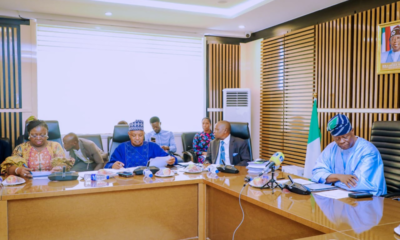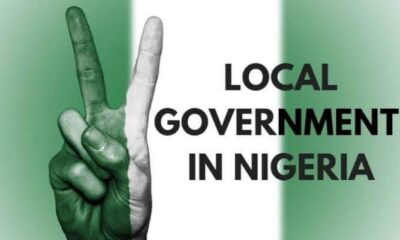The Nation
LG autonomy, a setback for practice of true federalism – James Ibori

Chief James Onanefe Ibori, a former governor of Delta State, as described today’s Supreme Court verdict which granted financial autonomy to 774 Local Government Councils, oLGCs of Nigeria an assault on true federalism.
Ibori stated that the decision might be interpreted as a reduction in state authority in a post he made on his X handle just moments ago.
He wrote;
The Supreme Court has dealt a severe setback on the principle of federalism as defined by section 162(3) of the 1999 Constitution (as amended). The section expressly provides thus:
“Any amount standing to the credit of the Federation Account shall be distributed among the Federal and State Governments and
the Local Government Councils in each State on such terms and in such manner as may be prescribed by the National Assembly”. Sections 6 provide further clarity on the subject matter.
(6) Each State shall maintain a special account to be called “State Joint Local Government Account” into which shall be paid all
allocations to the Local Government Councils of the State from the Federation Account and from the Government of the State.
The court’s ruling on the matter is an assault on true federalism. The federal government has no right to interfere with the administration of Local Governments in under any guise whatsoever. There are only two tiers of government in a federal system of government.
I’m opposed to fiddling with the allocations to the Joint LG Accounts at the state level but that in itself does not call for this death knell to the clear provisions of section 162 of the constitution. The implications of the ruling are far reaching and the issues that readily come to mind are:
1. Constitutional Interpretation: The Supreme Court’s ruling appears to contradict the explicit provisions of Section 162 of the 1999 Constitution. This raises questions about judicial interpretation and whether the court has overstepped its bounds in reinterpreting clear constitutional language.
2. Balance of Power: The ruling potentially shifts the balance of power between the federal government and states. By allowing federal intervention in local government finances, it arguably centralizes more power at the federal level, contrary to the principles of federalism.
3. State Autonomy: This decision could be seen as an erosion of state autonomy. States are meant to have significant control over their internal affairs, including the administration of local governments, in a federal system.
4. Financial Independence: The ruling may impact the financial independence of states and local governments. If the federal government can directly intervene in local government finances, it could potentially use this as a tool for political leverage.
5. Precedent Setting: This decision could set a precedent for further federal interventions in areas traditionally reserved for state governance, potentially leading to a more centralized system of government over time.
That Local Governments must be “democratically elected “ goes without saying. Yes, I agree, that’s the position of the constitution but withholding their allocation is not the way to go. It’s wrong.
In the coming days, we will begin to fully understand the implications of the Supreme Court decision. An assault on the constitution is not the answer to fiddling with the Joint LG Acount. If the ruling is saying Governors cannot temper, touch, fiddle with the Joint Accounts, that’s fine because they shouldn’t be doing that in the first place. But asking the Federal Government to pay Local Governments allocations to the account of the Local Government directly is utter madness.
Like the Hon. Justice Oputa JSC of blessed memory once said in describing the Supreme Court ” we are not final because we are infallible, but we are infallible only because we are final”.
It is my sincere hope that the judgement delivered today will be reviewed at the earliest time possible because it clearly stands the concept of federalism on its head.
James Onanefe Ibori
Nasir El-Rufai replies
From God we came and to Him we shall all return.





























